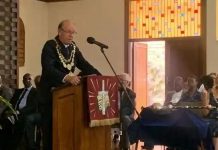Bulawayo political activist, Josphat “Mzaca” Ngulube (34) was Friday granted a $100 bail by a Bulawayo magistrate.
Ngulube was arrested on Wednesday with two others last Wednesday for allegedly engaging in an illegal demonstration.
Ngulube, who contested last year’s parliamentary election as an independent candidate in Bulawayo South Constituency, appeared before magistrate Franklin Mkhwananzi facing charges of contravening the Public Order and Security Act (POSA) when he allegedly convened a gathering without notifying relevant authorities.
Prosecuting, Rufaro Mageza told the court that on July 13, Ngulube submitted a notice to the police seeking to demonstrate on July 17. The notice was rejected for having been submitted on short notice.
“The regulating authority noted the accused had not given the 7 day notice as required by the law. He was contacted and advised that the time of notice was not in compliance with the law and so the route which they were to use amongst others was not started in their notice,” Mageza told the court.
The prosecutor told the court that on July 15 this year, police invited Ngulube to the regulating officer’s office for discussions concerning the intended demonstrations but Ngulube allegedly refused.
”On July 17 at around 12 midday at corner 10th Ave and Fort Street near Pick and Pay, Ngulube went ahead and convened a public demonstration where members of the public amounting to about 30 people gathered,” said Mageza.
During the gathering, Mageza further told the court that Shelton Tembo and Goodson Phiri displayed a banner inscribed the following words, “We have suffered enough. This nonsense must stop!!!! Our voices will not be silenced and Zimbabweans need solutions to the economic crisis now.”
Ngulube and five others are also facing charges of burning three cars belonging to former Zanu PF Bulawayo provincial Women’s League chairperson Eve Bitu during the violent January protests.
Ngulube and the five suspects spent almost a month at Khami Remand prison before they were granted bail by the High Court.






